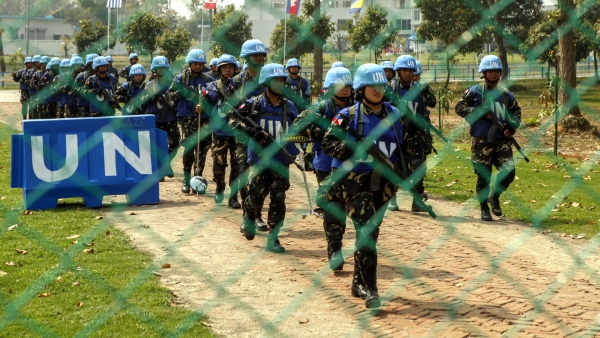In October, the International Peace Institute (IPI) released a new report with the title "Bouncing Back from Rock Bottom: A New Era for the UN Special Committee on Peacekeeping Operations?". In the past ten years, the Peacekeeping Commission (C-34) activity has been marked by several stalls and modest results. The situation has not improved with the release of a lengthy and intricate annual report in 2019. However, this year, a complete restructuring of the negotiating and reporting methods - based on the principles of the Action for Peacekeeping (A4P) initiative, introduced by United Nations Secretary-General Gutierrez to renew states' commitment to Peacekeeping and its reform - enabled the restoration of the Commission’s legitimacy.
Established in 1965, the C-34 is an intergovernmental institution which, in its task of making "a comprehensive review of the whole question of peace-keeping operations in all their aspects", is the main body enabling states outside the Security Council to be involved in the shaping of peacekeeping policies. The achievement of such a transformative arrangement for the drafting of the new report is remarkable, considering the extreme difficulty that the C-34 has historically had in agreeing on a reform. These complexities stemmed from consensual voting, internal disputes between regional blocs and the Commission's ambiguous role vis-à-vis other UN bodies involved in peacekeeping and the decision-making processes of the Security Council, which is the ultimate decision-maker on these issues. Examples of these organisations are the Fourth and Fifth General Assembly Commissions, the subsidiary bodies of the Security Council (such as the Working Group on Peacekeeping Operations) and the Council itself with its trend of thematic resolutions on peacekeeping.
The result was, therefore, a drafting process in which the main issues raised were the timely delivery of reports and the language used, to the detriment of usefulness and effectiveness. The increasingly lengthy, unfocused and less workable reports with differing priorities compared to the UN Secretariat (executor of peacekeeping policies) progressively called into question the very legitimacy of the Commission.
The drafting of the 2020 report initially showed similar problems as in previous years, but the general consensus and a faster pace of work allowed for the profound transformations that took place. The reasons behind these changes are, therefore, due to the desire to prevent obsolescence, to finish the work before a possible shutdown of the United Nations in New York due to Covid-19 and the decision to align the structure of the reports with that of the A4P, which avoided capillary procedural and stylistic discussions. The report is clear and programmatic and the structure of the A4P improved the Commission's ability to assist its main beneficiary, the UN Secretariat. In addition to underlining the important and relevant role of the C-34 in liaising the Secretariat with the various stakeholders, the new structure, consisting of specific subsections and a distinct number of recommendations - has allowed the creation of a clearer document through a more schematic drafting procedure.
Although this approach has allowed for a significantly more effective reform compared to the previous ones, this modus operandi has led to the marginalisation of some issues, such as the mere reference to the Resolution on Women, Peace and Security (WPS), which is not enough to address the contextual gender issues. Moreover, the C-34 report is lacking, compared to the A4P reports on direct recommendations on non-military personnel and the commitment of the host states to ensure peacebuilding and transition processes.
The reform of the Special Peacekeeping Commission is a sign of what is to come, showing a willingness to reform which could potentially allow more effective implementation of the commitments made by the States, enabling the C-34 to regain relevance in its role as a medium between the different actors. Simultaneously, the challenges to ensure the mutual accountability and cooperation among the multiple stakeholders involved in peacekeeping will be at the heart of the practical implications, timing and results of this reform in the years to come. The Commission, however, is now able to give a clearer direction in this respect with its report.
To read more, please visit:
https://www.ipinst.org/2020/10/new-era-for-un-special-committee-on-peace-ops
Author: Matteo Consiglio; Editor: Margherita Curti







